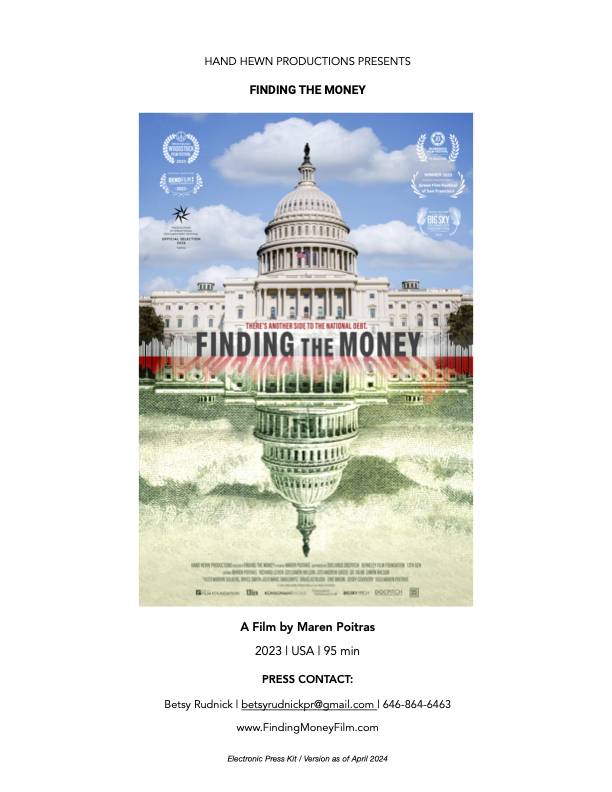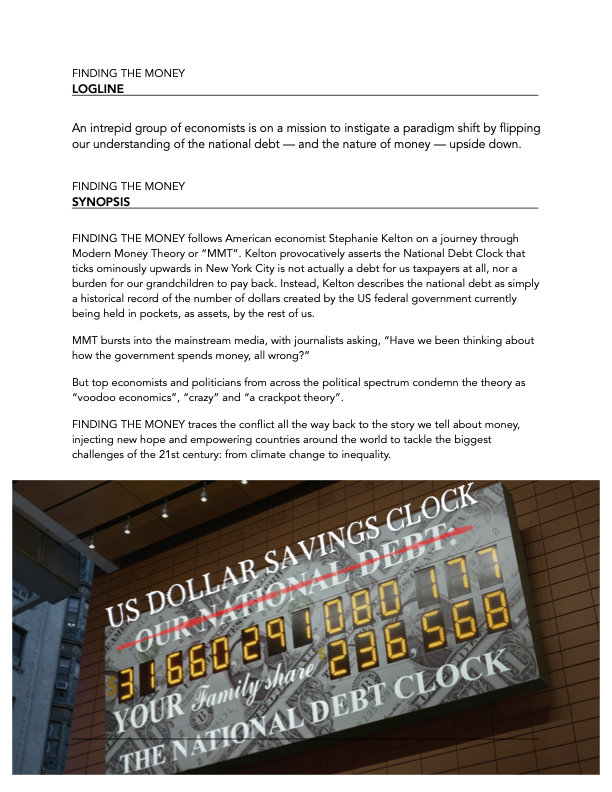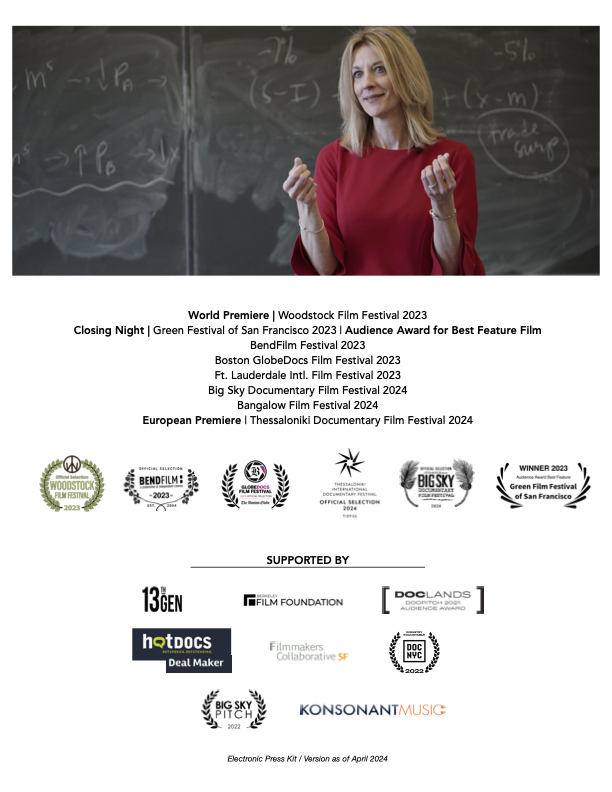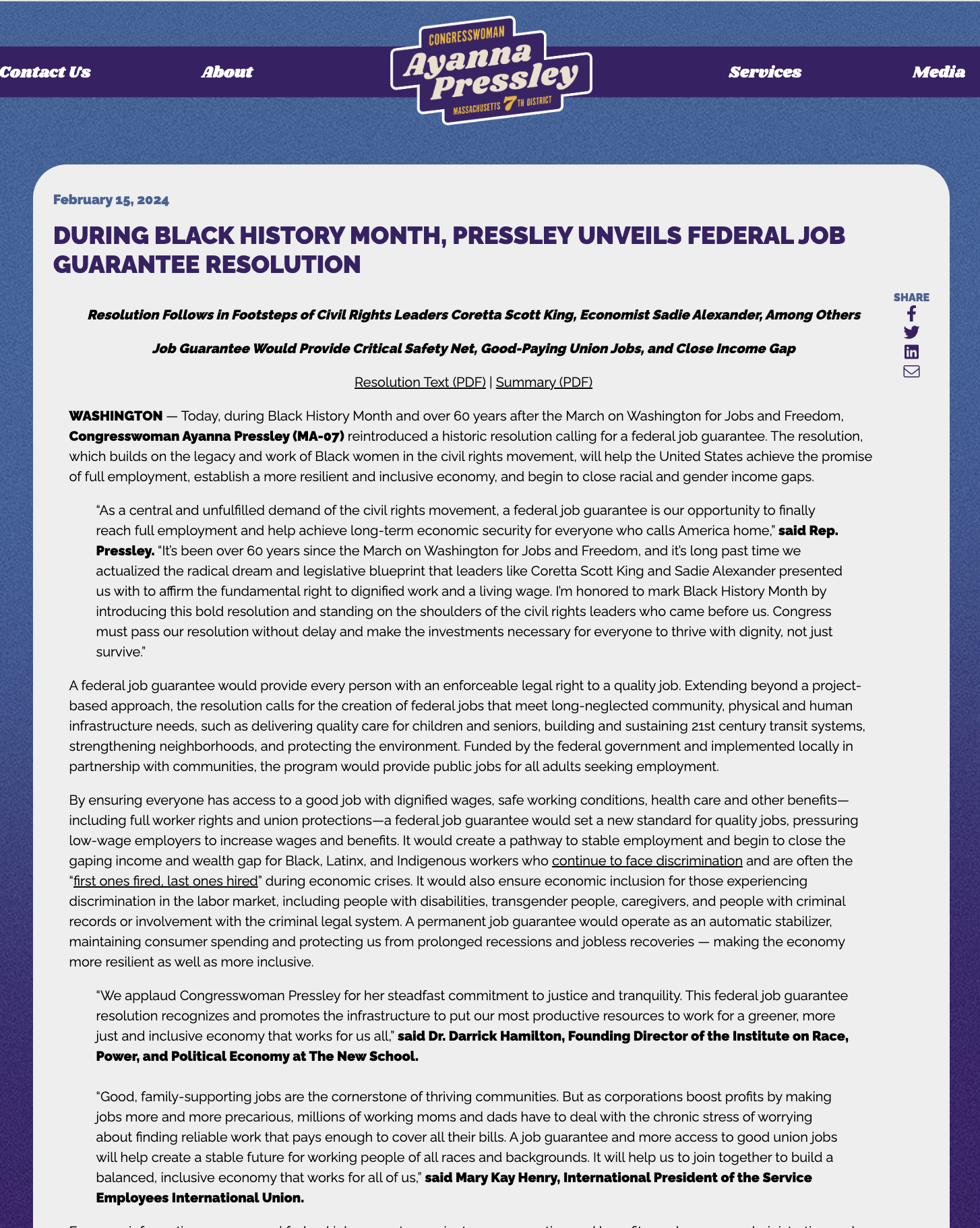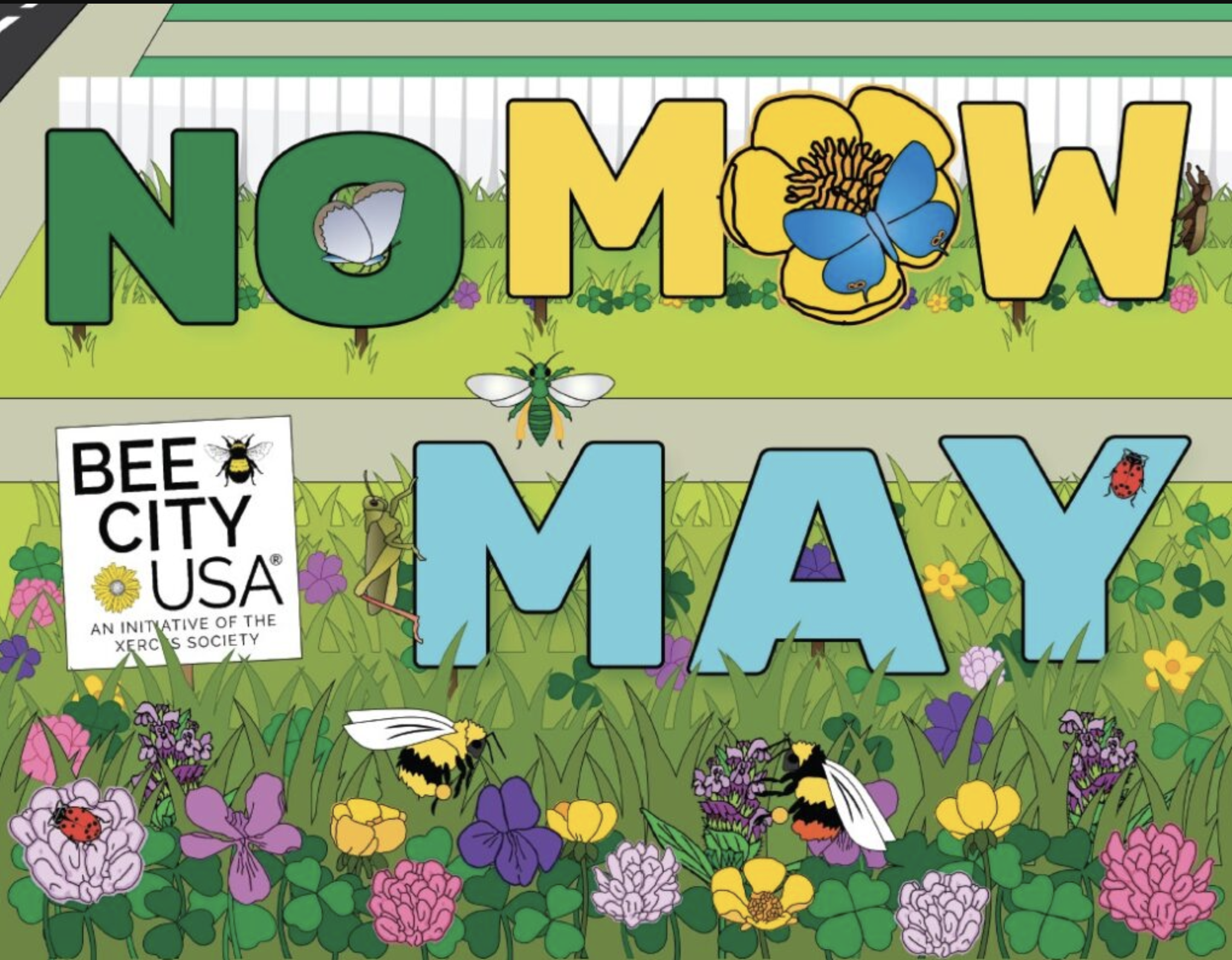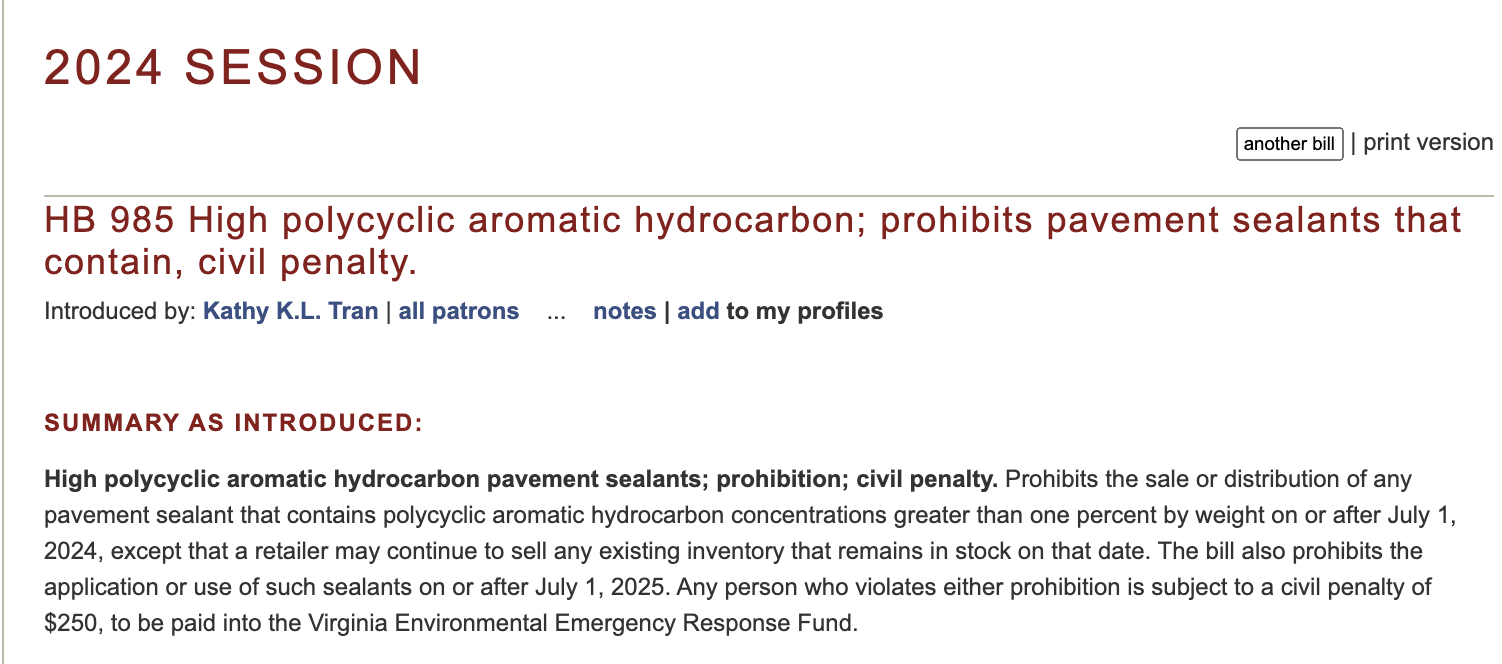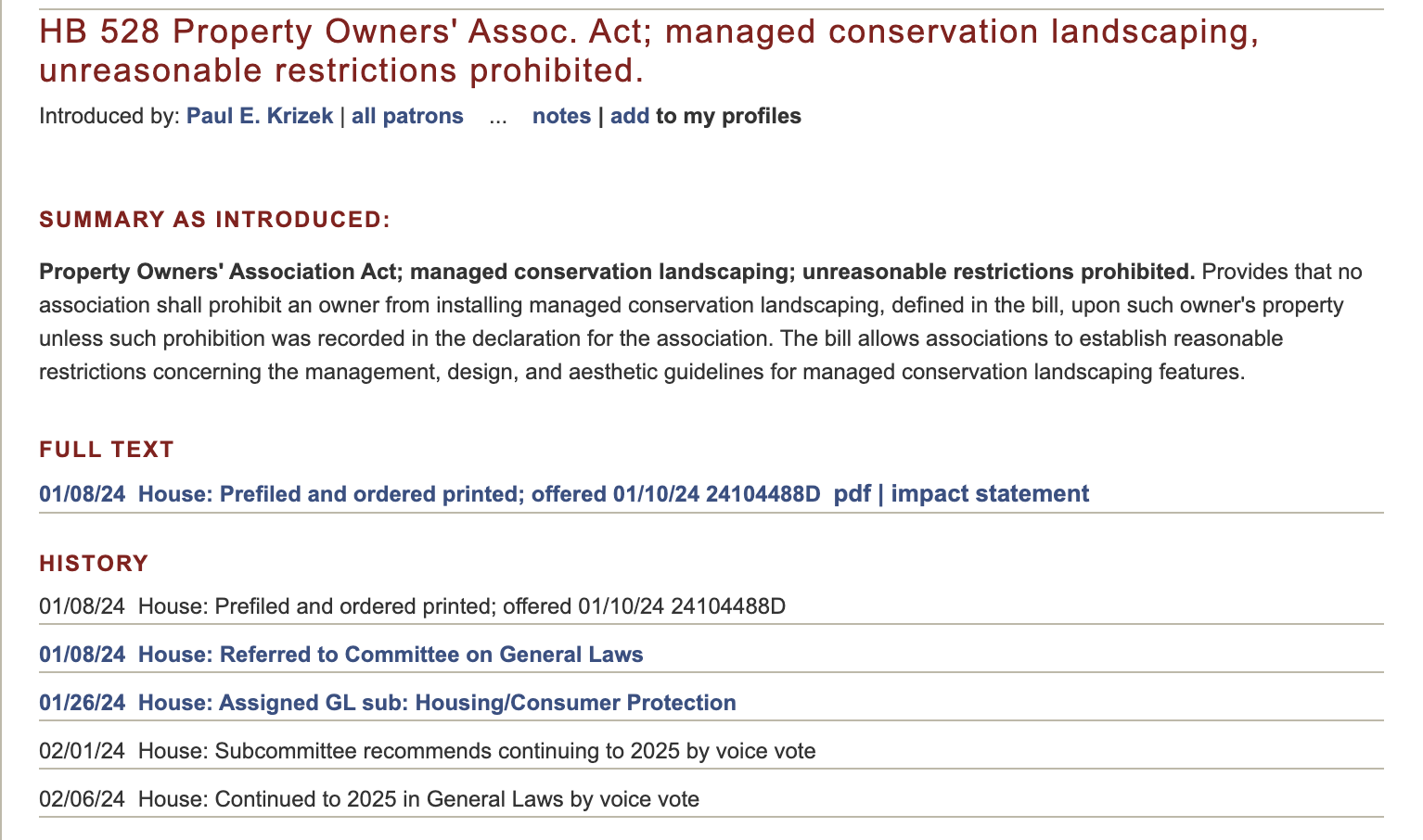What if money appeared out of thin air to let you keep doing what you started at Blacks Run cleanup?
Imagine if all who care to participate could be paid a dignified baseline wage and bennefits for participating in activities like Blacks Run Cleanup and Arbor Day Celebration. But where would the money come from?
Federal Level Success: Finding The Money.
Figure 1: These economists were closely connected to the Coalition and our street renaming. Stephanie Kelton provided pamphlets explaining the nature of money as it related to the 50th anniversary of the March on Washington for Jobs and Freedom which coincided with the August 13th, 2013, vote to rename Cantrell Avenue to Martin Luther King, Jr. Way.
Can we try it out?
Reimagine relations with nature and between people.
Our climate and ecology are in crisis because we have built social systems that alienate people from nature and from each other. More effective than starting wih the abstraction of greenhouse gasses, which leaves "environmentalists" wondering why they can't get LIDC participation in weatherization, would be to start with the small things.
Traps: getting lost in the clouds.
EVs and charging stations, swapping fuel sources that depend on extracting from the global South, can be a trap that lulls the comfortable into feeling that if we switch what we extract, we can keep living as we do over here, and the consequences will stay over there. Martin Luther King addressed this pitfall in his Beyond Vietnam where he demonstrated a detailed understanding of the moral outrage generated by the war, but then identified the trap of falling into self-righteousness and failing to move to root cause solutions.
"The war in Vietnam is but a symptom of a far deeper malady within the American spirit, and if we ignore this sobering reality…and if we ignore this sobering reality, we will find ourselves organizing "clergy and laymen concerned" committees for the next generation. They will be concerned about Guatemala, Guatemala and Peru. They will be concerned about Thailand and Cambodia. They will be concerned about Mozambique and South Africa. We will be marching for these and a dozen other names and attending rallies without end, unless there is a significant and profound change in American life and policy.
"And so, such thoughts take us beyond Vietnam, but not beyond our calling as sons of the living God.
The moral outrage of his time was eventually vented against happless local officials to make statements on what was happening over there, while playing into the hands of those suppressing voices that said maybe there's something we should be doing about how we live together over here. From King himself, to Malcolm X. Even then, what is now clear was starting to circulate in liberation movements: that there's no such thing as "tax payer dollars" that are scarce and are preventing us from treating those root causes because they are "being sent" over there.
Today, forces of confusion handed down from generations that came to colonize this land accustomed to commanding others, railroad us into subsidizing developers, engineering firms, and low-wage employers through so-called "affordable" housing in ways that bind people to jobs they can't leave, without growing their paychecks which could instead build local power and community outside those jobs. At the same time, they purport to shape towns to be bikeable and walkable but actually segregate those who have no choice on their jobs while opening what enclaves of community they have in desireable locations, to bicycle-riding gentrifiers. They privatize the public with displaced parking, create "incentives" which are actually barricades for those without choice, and erase the memory of the possibility ARPA funds demonstrated as Confederate monuments erased the memory of what Reconstruction democracy could look like.
Escaping the traps: coming back down to earth.
Figure 3: In the old days, we had to clean bugs off our windshields. There are no more bugs on winshields, and people are saying "we miss you, we want you to come back." But the insects and pollinators need something to eat. So there is an international movement to protect the May flowers.
State Level Successes: trash you can't pick up, rein in the HOAs.
The Coalition has made statewide progress on two bills in the general assembly this session that relate to protecting the small things in our water, the bill we originated to ban coal tar sealants passed with strong bi-partisan support and was signed by the Governor; and we made progerss in protecting the small things in our soil, we persuaded Delegate Krizek to try to strengthen his bill on protecting natural landscapes from HOAs.
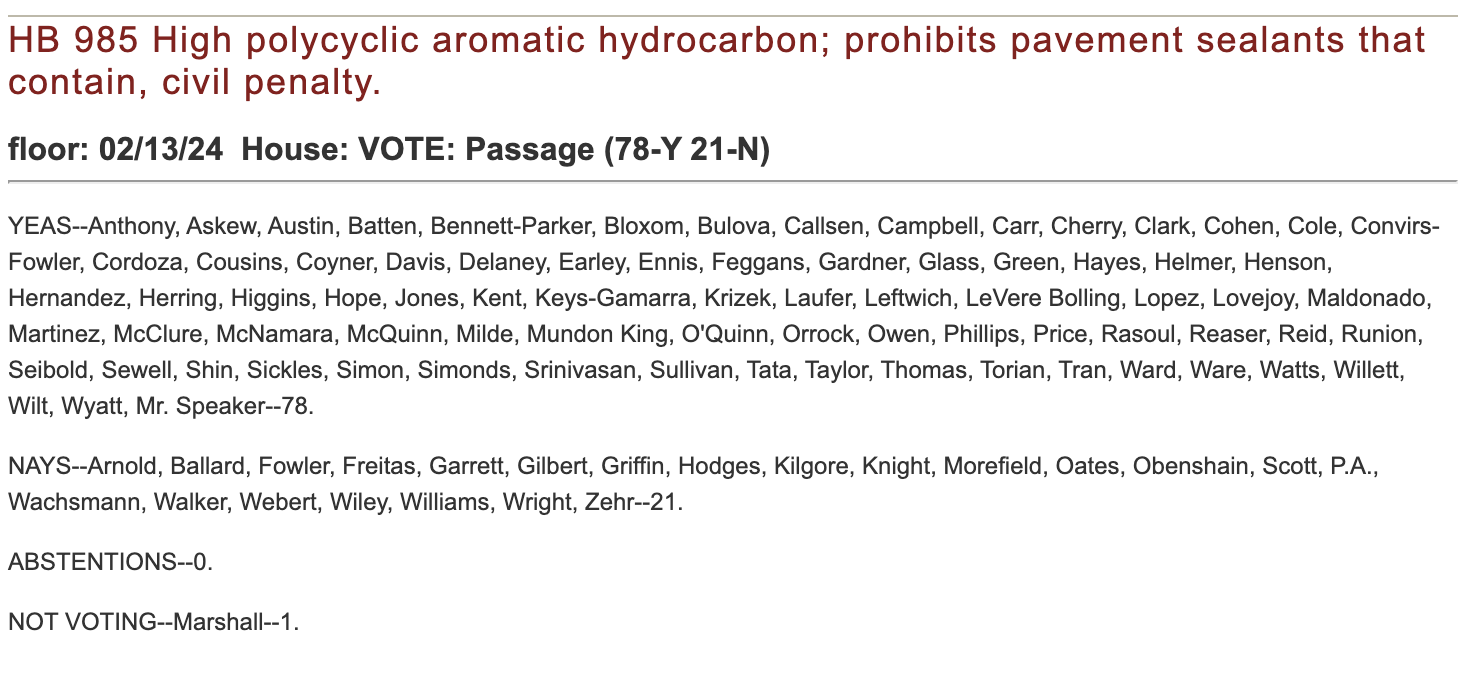

TODO Harrisonburg level.
Sign the petition to declare No Mow May and repeal the tall grass and weed ordinance (or their analogue at the state leve if you are not a Harrisonburg voter)
Example Resolution Declaring No Mow May and Calling for Repeal of Ordinance 16-6-58, Tall Grass and Weeds
WHEREAS, the City of Harrisonburg values the harmony that exists in our diverse community, and advocates for the dignity and safety of all residents, regardless of religion, race, or nation of origin; and
WHEREAS, lawn ordinances were created as a tool for housing segregation; and
WHEREAS, Harrisonburg didn't enforce lawn ordinances prior to the growth of its diversity; and
WHEREAS, Virginia didn't start to pass enabling legislation for lawn ordinances until the growth of diversity in Virginia's Planning District 8; and
WHEREAS, Harrisonburg's ordinance 16-6-58, enforced as a lawn ordinance with anonymous complaints, has been used to publicly humiliate and harass people based on religion, race, or national origin to the point of displacing them from their homes and businesses; and
WHEREAS the use of police power for aesthetic enforcement, including during Urban Renewal, has destroyed communities and promoted residential segregation with lasting racially disparate imacts on wealth, health, and environment; and
WHEREAS, ecosystem services contribute to harmony between people through personal and community psychological and physical wellbeing; and
WHEREAS lots allowed to grow out or undergo succession provide better ecosystem services than mowed turf; and
WHEREAS, only 82 of 2,442 Harrisonburg parcels with potential to increase ecosystem services, as indicated by participating in iNaturalist or being targeted by tall grass and weed complaints since 2011, participated in the stormmater utility credit; and
WHEREAS, support in various surveys for No Mow May or repealing 16-6-58 grew from at least 85% in 2018 to 95% or more in 2023; and
WHEREAS, Harrisonburg is situated in the most agriculturally significant region of Virginia and in a biodiversity hot-spot on the East Coast; and
WHEREAS, insects, especially bees, serve a significant and critical role as pollinators of plants including agricultural plants; and
WHEREAS, the ideal pollinator-friendly habitat is one comprised of mostly native wildflowers, grasses, vines, shrubs, and trees blooming in succession throughout the growing season; and
WHEREAS, the formative period for establishment of pollinator and other insect species and the many songbirds and other urban wildlife species that depend upon them occurs in late spring and early summer as they emerge from dormancy and require flowering plants as crucial foraging habitat; and,
WHEREAS, “No Mow May” is a community science initiative that encourages property owners to limit lawn mowing practices during the month of May to provide early season foraging resources for pollinators that emerge in the spring, especially in urban landscapes when few floral resources are available; and
WHEREAS, the City of Harrisonburg would like to encourage interested residents to increase pollinator friendly habitat by encouraging pollinator-friendly lawn-care practices on their own properties for the month of May during this formative period;
NOW, THEREFORE BE IT RESOLVED, that the City of Harrisonburg recognizes No Mow May to actively promote and educate the community about the critical period of pollinator emergence, generation of crucial pollinator-supporting habitat and early spring foraging opportunities.
BE IT FURTHER RESOLVED, that the Harrisonburg City Council directs staff to not accept complaints or issue violation notices for tall grass and weeds for the month of May, permitting all residents to voluntarily delay lawn care until June, allowing pollinator species to emerge and early flowering grasses and forbes to establish, which may result in ground-cover exceeding established ordinance height restrictions.
BE IT FURTHER RESOLVED, that the Harrisonburg City Council directs the City Attorney to draft for City Council's final May meeting in 2024 an ordinance completely repealing ordinance Sec. 16-6-58. - Weeds, etc., on lots, and related aesthetic landscape restrictions such as that on compost in Sec. 10-3-193. - Storage and screening.
BE IT FURTHER RESOLVED, that Harrisonburg City Council directs the City Manager to reallocate staff freed up by the repeal of 16-6-58 and related ordinances and procedures to providing or administering volunteer and paid programs for assistance in community landscape maintenance or conflict resolution toward repairing and preventing the repetition of historical harm to residents whose families lost homes, businesses, or community to Urban Renewal and related harms enable by allowing the use of police power for aesthetic enforcement.
BE IT FURTHER RESOLVED, that the Harrisonburg City Council commits to adopt and maintain the strongest version of tree canopy and landscape protection allowable by state statute.
BE IT FURTHER RESOLVED, that the Harrisonburg City Council commits to changing Harrisonburg's zoning to allow food forests and community gardens on all parcels, in all residential districts, by right.
Adapted from https://wspmn.gov/AgendaCenter/ViewFile/Agenda/_05052021-963?packet=true __
